Moss Park, at the intersection of Queen and Jarvis Roads, is not the destination playground families choose for Sunday afternoon entertainment. In Toronto’s downtown, the park plays host to throngs of homeless people and is surrounded by shelters and subsidized housing.
But for a few hours on one cold December afternoon, the park more closely resembled a pop-up market than an encampment for the homeless. Staffed by volunteers, and filled with groaning tables of clothing, linen, and toiletries, the temporary shop provided hundreds of Toronto’s most desperate with the wherewithal to survive the city’s bitter winter.
The clothing drive was a project of Chabad of Markham’s sweeping Tikkun Olam program, a venture that brings suburban families into the lives, and hearts, of people from across greater Toronto.
“In our affluent community, tzedakah can often seem like an abstract concept, especially to children,” says Goldie Plotkin, Chabad’s representative here with her husband Rabbi Avraham, for more than three decades. “‘Tikkun olam,’ G-d’s charge to us to better and beautify the world, is every Jew’s mission. We just make it fun and popular and very 2019.” Since its inception four years ago, the group, which can number more than sixty families, has met each month for a community service project.
Before Chanukah, dozens of children and their parents bought and brought gifts to the Chabad center. The children wrote cards and wrapped presents. By the end of the afternoon, there were hundreds of gifts ready for delivery to children who are ill. Another Sunday afternoon found Chabad’s in-house chef helping kids and their parents chop vegetables for massive pots of soups. The fruits of those labors, some 200 giant tubs, were donated to needy families. Several weeks before Purim, families prepared mishloach manot packages. The packages were delivered to residents in local nursing homes who then enjoyed a kid-based talent show.
For many families, one of the most powerful events was in the gymnasium of a school for children with special needs. Each family participated in different activities designed to illustrate life with a disability. At one station, the children were blindfolded and set to complete a task without the benefit of sight. Other spots had them envision what it is like to live with fine and gross motor disabilities, hearing loss, and autism. At the end of these exercises, the school’s students were invited to the gym for a dance party and cupcakes.
Mattie Schurder grew up here helping her parents, Rabbi and Mrs. Plotkin. She returned a few years ago with her husband, to assist with young families. The program, she says, is not only a valuable volunteer opportunity, it’s also a chance for people to get in tune with their Jewish selves. “Tikkun olam is not threatening. It is not saying that you are changing your life. But doing a kindness feels good, and once you get to know the people, you realize you’re comfortable. And before you know it, you’re more involved in our whole community.”
Children who participated in sixty percent of the year’s events were invited to Mayor Frank Scarpitti’s chambers for an award ceremony. The mayor, in full regalia, handed each child a plaque and told him that “children like you are making a difference in Canada.” Though “it was very moving,” says Plotkin, “recognition is not the reason these children participate.”
“I want our kids to come out of their bubble,” says Jodi Schneider, one of Tikkun Olam’s coordinators. The South African native, and mother of three children, says that her family’s participation gave her kids “an awareness of how privileged they are” and a reminder to “always think of others and our community.”
Schneider arranged for a bus to transport the community’s donations (some 100 oversized, sorted bags) downtown. At the park, volunteers laid out the offerings neatly on long tables. Starbucks, a co-sponsor, set up a booth with hot coffee for participants. The event was called for two P.M. By one o’clock, hundreds of homeless people were lined up and ready. “We’re here from the Jewish community and we want to help you,” the children said as they approached the “shoppers.” Armed with garbage bags, the Tikkun Olam kids assisted people from the Muslim, Indian, and Christian communities with choosing and carrying their items.
At the end of the day, says Schneider, “it’s nice to feel that we’re making winter a little easier, that we’re making a difference.”
Giving out a change of clothing is one thing, but Plotkin has plans for even more change next year. “An older man came up to me on Sunday to say that what we were doing was very nice, but a job would be even nicer,” she says. “When you get out there on the streets, and listen to their stories, your heart breaks.” Next winter, Plotkin is determined to give people “a hand up, not a hand out. I would like to partner with government organizations that can help people find training and jobs. If they say, ‘we don’t work on Sundays,’ well, we don’t either. This is giving. And we all have to be in it together.”
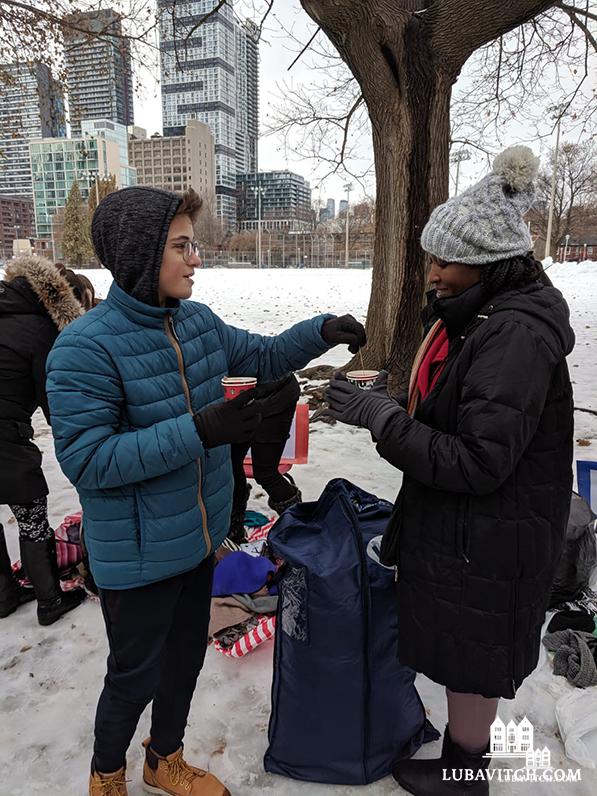
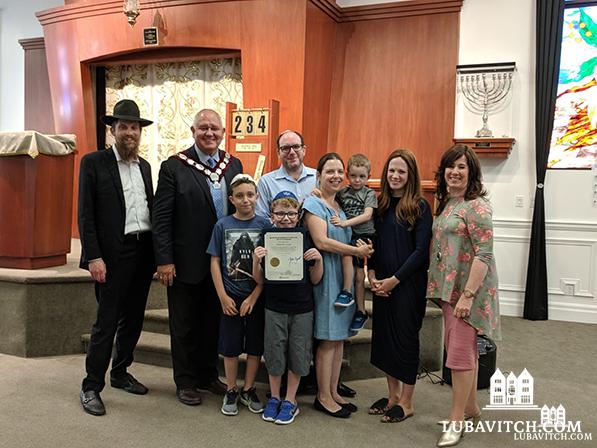
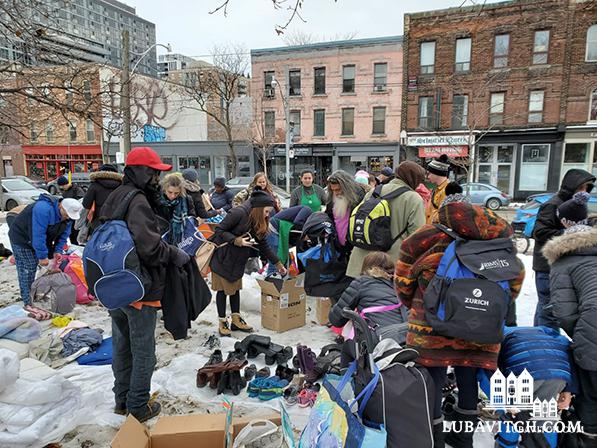
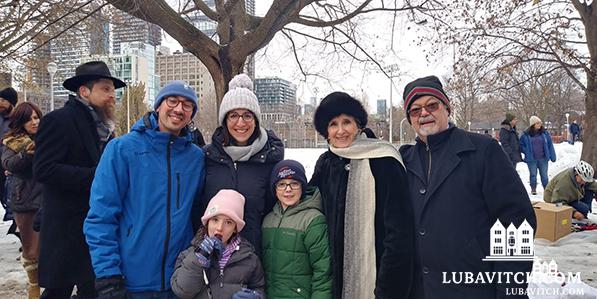
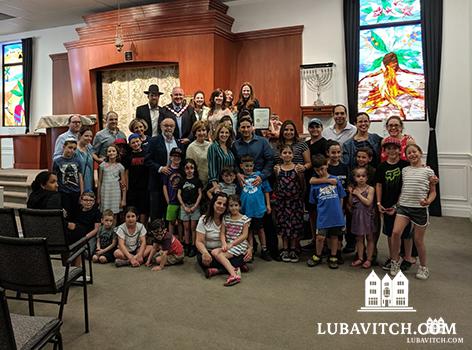
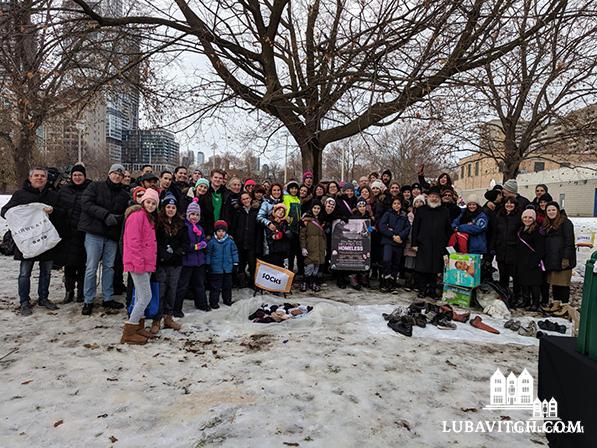
Emese (Michaela) Oseni
Love my Chabad – so proud to be a Chabad member.